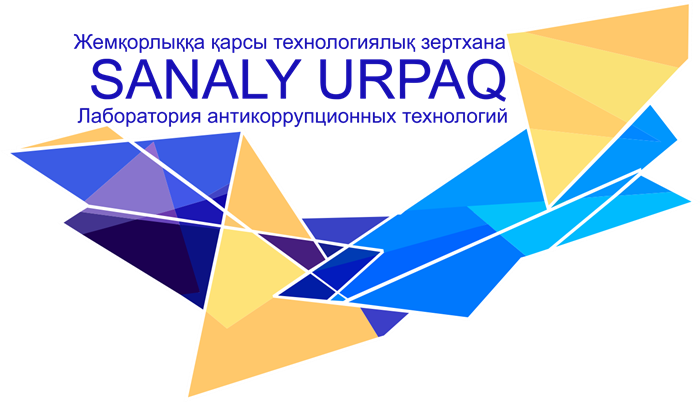
"Sanaly Urpaq" Design Center
Mission of the “Sanaly Urpaq” Project for 2018–2020 (hereinafter referred to as the Project): patriotic and competitive youth aiming to live in Kazakhstan, free from corruption.
The goal of the Project is to eradicate corruption in the education system, create an environment of general rejection of corruption through the education system.
The Project's strategy is based on the approbation and implementation of pilot directions with the aim of further using the best practices in educational institutions of the country.
Major achievements:
Thanks to the policy of the Head of State, Kazakhstan is implementing a fundamentally new model of combating corruption. The process is carried out within the framework of the implementation of the Strategy “Kazakhstan-2050”: new political course of the established state , which raises corruption to the rank of a direct threat to national security and aims the state and society to unite efforts in the fight against this negative phenomenon, as well as the messages of the President of the Republic of Kazakhstan, Anti-Corruption Strategy of the Republic of Kazakhstan for 2015-2025, Five Institutional Reforms and the Plan of the Nation “100 Concrete Steps”. These documents lay down systemic conditions for combating corruption and the formation of intolerance in society towards any of its manifestations.
As a result of the systemic and comprehensive measures taken, administrative barriers and corruption risks were minimized, the quality of the provision of public services was increased due to the introduction of standards and regulations for their provision, the transition to a transparent state accountable to society was ensured, a constructive partnership and an open dialogue with the non-governmental sector were established, modern and effective laws were adopted, legal awareness, legal and anti-corruption culture of the population increased. This is evidenced by the increased level of public confidence in the state’s anti-corruption policy.
Justification of the Project:
1) a quarter of the country’s population (4.5 million people) is involved in education (school students, college students, teachers);
2) the sphere of education is a factor of not only educational, but also spiritual and cultural development of young people, and it is at a young age that basic life principles and human values are laid;
3) academic integrity is one of the main factors in the quality of education and the formation of anti-corruption consciousness of pupils and students;
4) young people who have received a baggage of high-quality knowledge and correct life principles will adhere to anti-corruption behavior in adulthood.
Priorities of modern anti-corruption policy:
The main distinguishing feature of the new anti-corruption policy of the state is the shift in emphasis on the prevention of corruption. For the first time, institutions of prevention have been introduced - anti-corruption monitoring, as well as identification, analysis and elimination of corruption risks. A set of measures for anti-corruption education and education of the population, the formation of an atmosphere of absolute rejection of corruption is being implemented.




